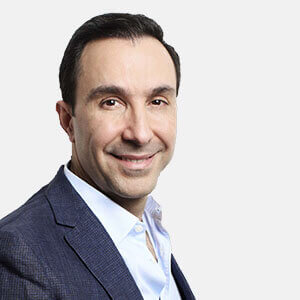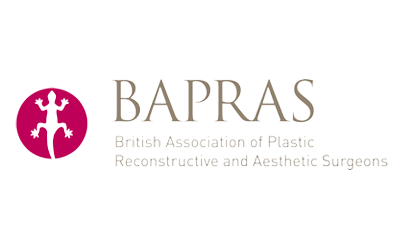Physically, a facelift can lift the skin, tighten the jowls and smooth the face. Mentally and emotionally, the reasons men and women may wish to undergo facial rejuvenation surgery, and therefore its impact, are profound and complicated.
Ageing has changed in terms of how people perceive themselves. When it comes to the body, you can do much in terms of exercise and diet. However, you can’t change the amount of collagen in your skin and gravity’s impact over 50 or 60 years. So, you can feel great, run marathons, and compete with 20- and 30-year-olds in the gym, but then you see yourself in the mirror, and the person looking back doesn’t reflect how you feel.
Often, it’s that trigger which starts the process for patients. It’s about something other than looking much younger. It’s about wanting the external image to be a more accurate reflection of how they feel inside.
We can’t make them look 25 again, but we can turn the clock back ten years and give them a much fresher look. For most patients, that’s what they are looking for.
Another reason why patients might be contemplating a facelift is that circumstances change. Marriages break up when they least expect it, bereavements can occur, children leave home, and financial considerations mean they may need to stay at the top of their game at work or look for a new position.
It’s human nature to be optimistic, so people take this journey to reinvigorate and reinvent themselves to face the next phase in their lives.
Men and women often have different drivers. Women have thinner skin, and collagen breaks down quicker due to hormonal changes; men are thicker-skinned in every way! So, they often do not notice the ageing process as quickly as women tend to.
Menopause and hormone regulation play a significant role in the ageing process and have a detrimental impact on skin quality. But it also has emotional repercussions, and women often feel that they have lost their identity as a result.
However, this is always down to the individual and their self-awareness. Some people are never bothered by ageing changes while some can go for many years without noticing them, and suddenly, one day, for whatever reason, it just clicks. Others have spent many years looking after their skin and having preventative treatments before deciding surgical intervention is required.
Making the decision to undergo a facelift
I think it’s extremely rare for a person to wake up one day and decide they want a facelift. It’s something they will have thought about for a long time. Eventually, they may choose to have a consultation, and often, that first encounter will be a make-or-break point.
They can easily be put off if they don’t have a good experience at that consultation. It’s like chemistry; if they meet someone they can trust, who puts them at ease so they can explain what’s concerning them, and who they feel is giving them honest, unbiased advice, the patient usually feels confident in their decision to proceed.
Often, patients may have embraced non-surgical treatments previously, whereas, for others, their first intervention is surgical.
The psychological impact of a facelift
As surgeons, we only see a snapshot of a patient’s life at the consultation and follow-up appointments. But patients do come back telling me how much their surgery has changed their lives. This could be getting great comments from friends and relatives who they’ve never had compliments from before.
They will often say that they still wake up in the morning, expecting to see a tired, haggard face and experience a sense of shock that they look much younger and fresher.
I think this is a common fear in the beginning: that it’s all a dream, and they’re going to wake up suddenly and it’s gone. It takes quite a while for them to register the change.
They also go through a phase, particularly in the initial post-operative period, where they hate their face. They look swollen, distorted and bruised, and they think to themselves, oh my God, what have I done? I don’t believe I’m going to be normal again. It’s a journey for them.
We prepare patients as best as possible for this journey they will go on. Our Patient Coach, Kimberley, offers counselling before and after surgery, and I will try to prepare them in the consultation for the impact of facial rejuvenation surgery. I phrase it that they must go through hell before getting to heaven. This isn’t to put them off but to ensure they know what to expect.
Through the eyes of a surgeon
As a surgeon, I look to see if there is something that I can address and enhance. I’m looking at how much skin laxity there is and how much improvement I can make. In front of the mirror, I’ll stimulate what result I can achieve. Some patients have only mild to moderate skin sagging, and the correction isn’t hugely substantial, but for them, it clicks. Watching their reaction is essential as it gives me an insight into their expectations.
Living up to their expectations is the hardest part of my job because if the image in their mind isn’t achievable from a practical perspective, I won’t be able to make them happy.
This is often the difference between an experienced and inexperienced surgeon. Picking up on these subtle psychological nuances to ensure you can meet their expectations. Because if you get that wrong, you’ve got a problem.
If you have been considering a facelift and are interested in discussing it further with Mr Alex Karidis, call 0207 432 8727 to speak to one of the team.

















